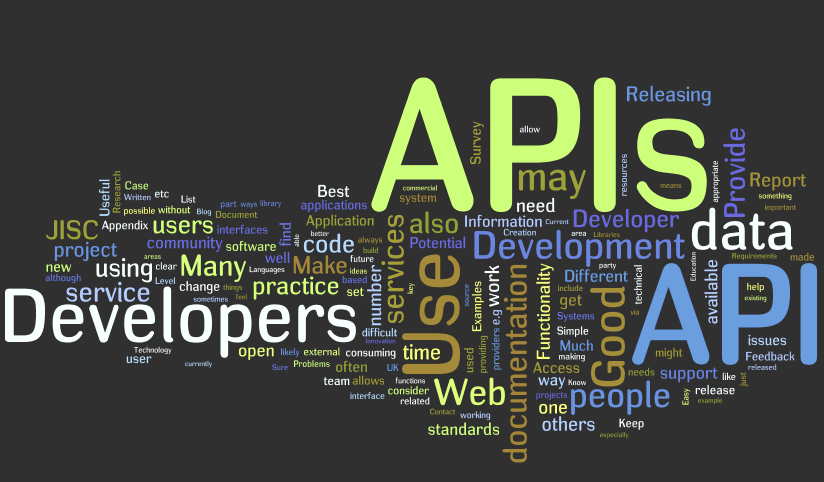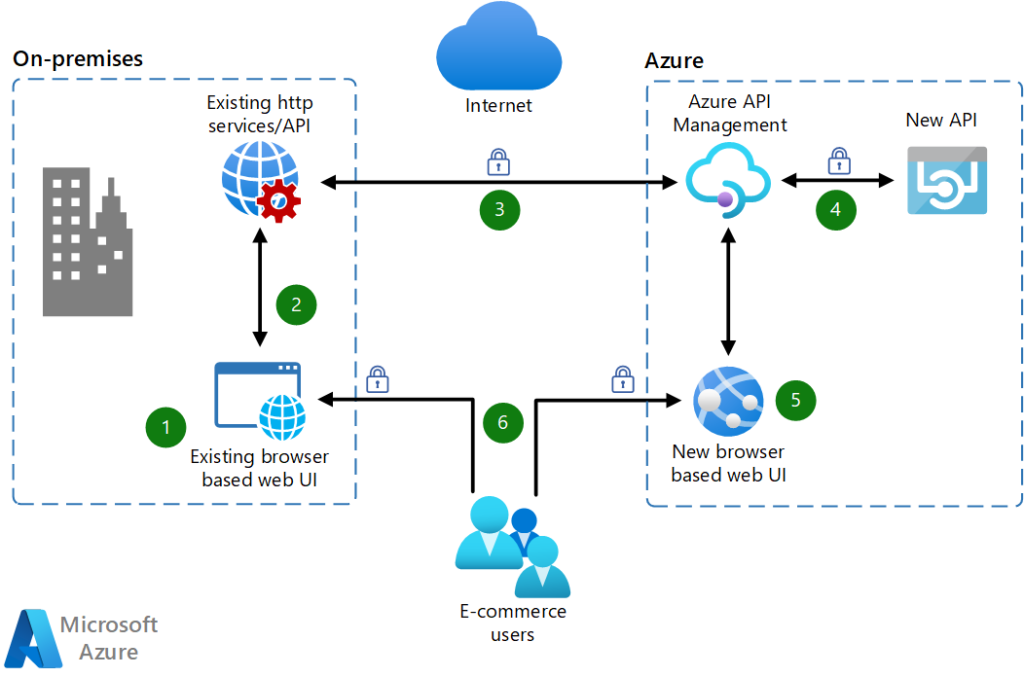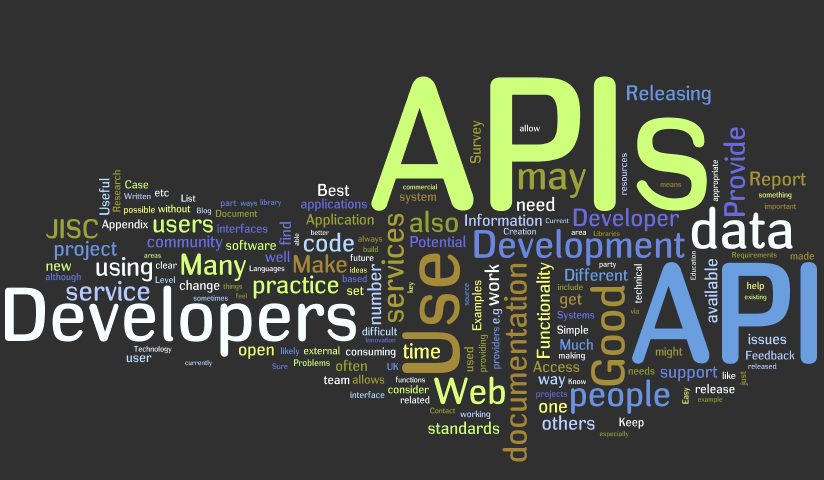
Microsoft, a global leader in technology, has been at the forefront of innovation for decades. With a diverse portfolio of products and services spanning operating systems, cloud computing, artificial intelligence, productivity tools, and more, Microsoft has revolutionized the way we interact with technology and transformed industries worldwide.
In this blog, we aim to provide you with a comprehensive understanding of the Microsoft API development.
Microsoft APIs
Microsoft APIs (Application Programming Interfaces) are sets of rules and protocols that enable developers to access and interact with Microsoft’s services, platforms, and software. These APIs provide a standardized way for applications and systems to communicate and exchange data with Microsoft services, allowing developers to leverage the functionalities and capabilities offered by Microsoft in their applications.
Microsoft offers different APIs across various domains, catering to different development needs. Some of the key Microsoft APIs include:
Microsoft Graph API: This API provides a unified endpoint to access data and services across Microsoft 365, including Office 365, Azure Active Directory, Outlook, OneDrive, SharePoint, and more. It allows developers to integrate Microsoft’s productivity and collaboration features into their applications, enabling tasks like accessing user profiles, managing calendars, retrieving documents, and interacting with teams and groups.
Azure APIs: Microsoft Azure offers a comprehensive set of APIs that enable developers to build, manage, and deploy applications on the Azure cloud platform. These APIs cover a range of services, including virtual machines, storage, networking, databases, machine learning, and more. Developers can use Azure APIs to automate processes, scale applications, analyze data, and leverage the various features provided by Azure.

Cognitive Services API: Microsoft’s Cognitive Services API allows developers to incorporate artificial intelligence capabilities into their applications. This API offers a suite of pre-trained models and algorithms for tasks such as language processing, image recognition, sentiment analysis, speech recognition, and translation. By using these APIs, developers can add intelligent features and enhance the user experience in their applications.
Office 365 APIs: Office 365 APIs provide access to Microsoft Office 365 services, such as Exchange, SharePoint, and OneDrive. These APIs enable developers to create applications that interact with Office documents, calendars, contacts, and other collaborative features.
Dynamics 365 APIs: Microsoft Dynamics 365 APIs allow developers to integrate and extend functionalities of the Dynamics 365 business applications, including customer relationship management (CRM) and enterprise resource planning (ERP) systems. These APIs enable developers to create custom applications, automate business processes, and access data from Dynamics 365.
Microsoft APIs provide developers with the tools and resources required to enhance their applications and services with Microsoft’s powerful technologies. They enable seamless integration, interoperability, and access to various functionalities, empowering developers to create innovative and feature-rich applications that leverage Microsoft’s services and platforms.
There are many benefits of using Microsoft APIs.
Here are a few of the most important ones:
Increased productivity: Microsoft APIs can help app development in mobile easier by saving time and effort. This can free up developers to focus on other aspects of their applications, such as user experience and design.
Improved security: Microsoft APIs are secure and reliable. They use industry-standard security protocols to protect data in transit and at rest. This can help organizations reduce the risk of data breaches and other security incidents.
Enhanced scalability: Microsoft APIs are designed to be scalable. They can be used to support applications with a wide range of user traffic. This can help organizations avoid the need to invest in expensive and complex infrastructure.
Reduced costs: Microsoft APIs can help organizations save money by reducing the need to develop and maintain their custom APIs. This can free up IT resources to focus on other priorities, such as innovation and customer service.
Overall, Microsoft APIs can provide several benefits for organizations of all sizes. They can help organizations improve productivity, security, scalability, and cost-effectiveness.
Here are some specific examples of how Microsoft APIs can be used to benefit businesses:
A retail company can use Microsoft APIs to integrate its e-commerce platform with its inventory management system. This would allow the company to track inventory levels in real-time and ensure that customers can always purchase the products they want.
A healthcare organization can use Microsoft APIs to integrate its electronic medical record system with its billing system. This would allow the organization to streamline its billing process and improve its cash flow.
A financial services company can use Microsoft APIs to integrate its customer relationship management system with its fraud detection system. This would allow the company to identify and prevent fraudulent transactions.
These are just a few examples of how Microsoft APIs can be used to benefit businesses. By using Microsoft APIs, organizations can improve their operations and gain a competitive edge.
What is new in Microsoft APIs
Here are some of the latest updates to Microsoft APIs:
Microsoft Graph
May 2023: New in preview only
- Device and app management | Cloud PC
- Education
- Identity and access | Directory management
- Identity and access | Governance
- Identity and access | Identity and sign-in
- Security | Attack simulation and training
- Tasks and plans
- Teamwork and communications | Calls and online meetings
The Microsoft Graph is a unified API that provides access to data from across Microsoft 365. In April 2023, Microsoft added support for the Edge API, which allows administrators to manage browser site lists for Internet Explorer (IE) mode in the cloud. Additionally, the Virtual Appointments API was updated to allow users to get the join URL for an appointment on the Virtual Appointments app for Microsoft Teams.
Windows API
The Windows API is a set of APIs that allow developers to create applications for the Windows operating system. In June 2023, Microsoft released updates to the Windows API that include support for spatial sound, opportunistic locks, and reparse point tags.
Azure API
The Azure API is a set of APIs that allow developers to build applications that use Azure services. In May 2023, Microsoft released updates to the Azure API that include support for the Azure Databricks API, the Azure Machine Learning API, and the Azure Functions API.
Here are some additional details about the updates to the Microsoft Graph, Windows API, and Azure API:
Microsoft Graph: The Edge API in Microsoft Graph allows administrators to manage browser site lists for Internet Explorer (IE) mode in the cloud. This can be useful for organizations that want to ensure that their users can access approved websites while using IE mode.
Windows API: The spatial sound update to the Windows API allows developers to create applications that support spatial audio. It’s used to create immersive audio experiences for users of Windows devices.
Azure API: The Azure Databricks API allows developers to create and manage Azure Databricks clusters. The Azure Machine Learning API allows developers to create and train machine learning models. The Azure Functions API allows developers to create and deploy Azure Functions.
These updates to Microsoft APIs provide developers with new capabilities and features to create innovative applications.
Final thoughts
Werq Labs, an app development company, prioritizes delivering exceptional user experiences, robust security, and seamless integration with Microsoft technologies. By utilizing Microsoft APIs, we tap into a wealth of resources and capabilities that empower us to create cutting-edge applications that meet the unique requirements of businesses across industries.
Partner with Werq Labs, a website and app development company and leverage the power of Microsoft APIs to unlock the full potential of your application. Our team of experienced developers will work closely with you to understand your vision, incorporate your specific requirements, and deliver a solution that exceeds your expectations. Embrace the power of Microsoft APIs and witness your app’s success in today’s competitive digital landscape.
Contact Werq Labs to get started on your transformative app development journey.
